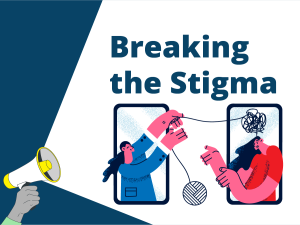I remember sitting on a coffee date with a friend when he asked me what my highlight was for work this week. I told him that my highlight of this week was conducting a group therapy session. “Group Therapy!!” he expressed in shock. “I thought that went away after the ’60s.”
I’m happy to report that group therapy did not go away in the 1960s. However, many people, like my friend, don’t realize that group therapy exists as a powerful therapeutic option to consider instead of, or in addition to, individual therapy.
People may dismiss group therapy because it’s a therapeutic approach more often utilized in hospitals and treatment centres than in private practices. It can be difficult to find private practice therapists who run groups. Sometimes, it requires a lot of research and phone calls to find a group. However, plenty of therapists do run groups in their private practices, and this unique experience is worth the effort it might take to find it.
So, what’s so special about group therapy?
- It provides community and connection. Challenges tend to be harder when there is no one to share them with. In group therapy, individuals find relief through sharing their thoughts and feelings. Personal sharing creates connection and emotional support.
- It’s an opportunity to learn from others. In group therapy, members learn from the other members. They see others successfully coping with depression; hear multiple perspectives on problems; observe others take emotional risks and be rewarded, and discover things about themselves by seeing those things in someone else. For example, seeing a fellow group member judging themselves can help a person understand the injustice and cruelty of his or her self-criticism.
- It cultivates honest input from multiple sources. Defence mechanisms prevent people from receiving the insight they seek from therapy. Defences ignore what a therapist might say because that’s just one person’s opinion, but when a group of people say the same thing, it’s not so easy to ignore. Helpful input breaks through the defences increase insight and facilitates therapeutic change.
- It’s a safe space for interpersonal learning. One of the greatest benefits of group therapy is interpersonal learning. In group therapy, people engage in relationships with the other members of the group. If a person is very passive in his or her relationship, never asking for things, never saying “no”, he or she is likely to be passive in relationships with the other group members. Whatever a person’s relationship style, it will eventually be reenacted in the group. This reenactment allows all parties to become aware of this relationship dynamic. Once a person is aware of his or her typical way of interacting with others, the group provides a safe laboratory in which the person can try behaving differently. Standing up for oneself, setting boundaries, and expressing intimate feelings are the types of healthy relationship behaviors that can be developed in group therapy.
- It’s generally a more affordable option. Although cost varies from setting to setting and from therapist to therapist, group therapy rates tend to be more affordable. This allows people to stay in therapy longer than their financial situation might otherwise allow them to.
No, group therapy is not dead. All around the country, people are gathering in groups to be more truthful, more engaged in relationships, and more open to insight than they are the rest of the time. Group therapy is very much alive!
Are you ready to give it a try?
About Sakina
Sakina has experience and is well versed in assisting clients experiencing Bipolar Mood Disorder, Depressive Disorders, Post Traumatic Disorder and Anxiety Disorders.
To book an appointment with Sakina, kindly Call / WhatsApp +254 745 562 108 or leave a message below.









